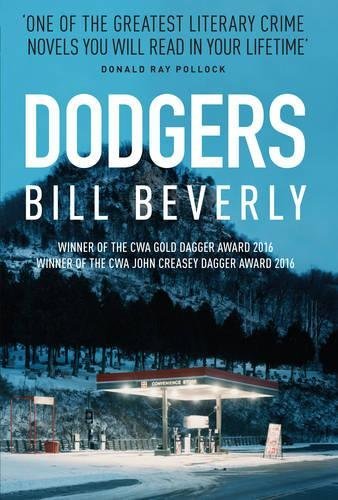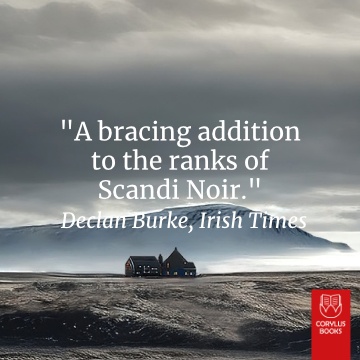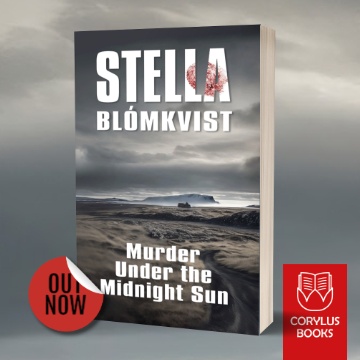 When American author Bill Beverly’s debut novel Dodgers came out last year, straight away it received a five-star review here on Crime Fiction Lover. It went on to win the Gold Dagger at the 2016 CWA awards. Telling the story of a gang of black youths from LA who are sent on a mission to kill a man in all the way over in Wisconsin, it’s a book that combines a road trip, fish-out-of-water elements, a coming of age story, and a fair bit of violence. It has been optioned for cinema, and with all the accolades that have come his way, we decided to meet up with Bill Beverly and find out more about his approach to writing, and what he’s up to next…
When American author Bill Beverly’s debut novel Dodgers came out last year, straight away it received a five-star review here on Crime Fiction Lover. It went on to win the Gold Dagger at the 2016 CWA awards. Telling the story of a gang of black youths from LA who are sent on a mission to kill a man in all the way over in Wisconsin, it’s a book that combines a road trip, fish-out-of-water elements, a coming of age story, and a fair bit of violence. It has been optioned for cinema, and with all the accolades that have come his way, we decided to meet up with Bill Beverly and find out more about his approach to writing, and what he’s up to next…
What led you to writing a crime novel?
I wrote a crime novel because I grew up loving crime stories, whether they were filmed, whether they were on television, whether they were fictional or true. I tended to follow crime stories in the news, like the abduction of Patty Hearst, which happened in 1974. She was out there with the SLA for a year and robbing banks. There have been movies made of it but not really a brilliant one yet.
I always enjoyed stories about crime much more than policing stories. I wasn’t really interested in the manhunt side of the story, I was much more interested in the fugitive and how she or he made their run and tried to get away, and the pressures of that sort of existence on a person who previously was at home with a family, had roots, and now is trying to either become someone else or stay themselves even though they have pulled out all those plugs.
I discovered Jim Thompson fairly early, and James M Cain who is the best writer who ever lived in my ZIP code in America. He lived on the other side of my postal code. He lived the last 40 years of his life at 6707 44th Avenue. I live on 34th in Hyattsville, Maryland, which is a little town rapidly growing fond of itself.
It always seemed to me that if Lolita, In Cold Blood and The Stranger could be considered literary, why couldn’t Double Indemnity?
What is it that you think crime fiction lovers are loving about Dodgers and its main character, East?
As the book opens East is hard, other people don’t like him, he is even arguably cruel in the first chapter. And it takes a while before he even takes centre stage. There are signs that he might be a sympathetic character that come in the second or third chapter, but it takes a while for him even to assume the mantle of being a protagonist. That’s not really the way you’re supposed to do it. Perhaps doing that makes a sort of journey of empathy that goes along with the road trip in the book. It may be that Dodgers asks readers to do a little more of the math of, ‘Oh, okay, this is a sympathetic character and I figured that out myself,’ rather than having it manifest from the beginning.
 What do you make of the reception the book has received?
What do you make of the reception the book has received?
All I wanted was to finish a book and maybe somebody publish it and if I got a reader that would be a bonus, so it has done far better than we might have imagined, particularly in Britain, and as we say in the US, we’re playing with house money.
You grew up in the Michigan and now you teach in Washington, DC, but the story’s home base is LA before it heads across the country. Why did you choose a setting that maybe you aren’t so familiar with?
American history and literature are already full of western movements. Everything tends towards the Pacific Ocean, and that landscape of the West is this incredibly rich, symbolic bounty of our appropriating it from the people who lived on it. We erased them physically and historically from its face, and we imagine it like, ‘Wow, it just dropped into our hands, it was given to us by God.’ Until our current president, we imagined we would keep it looking as it is forever and it would be a symbol forever of our greatness and our toughness and the vastness of our resources.
That is something that I wanted East, as a kid who has never been outside Los Angeles and hasn’t really thought outside Los Angeles, to encounter but I wanted him to go in a different direction. I wanted him to have that encounter with that landscape, which African Americans have experienced differently, I would suggest, to white Americans. My parents drove me through it several times when I was a kid and I have a different relationship to that sense of communal national ownership that has always been only tenuously offered in the symbolic world of black Americans. I wanted him to transit through that.
What are your thoughts on race as a theme or issue in Dodgers?
I think that issues kind of spring out of the rock of people. As a graduate student I had studied black characters’ relationship to the landscape dating back to fugitive slave narratives. Their experience of the landscape, especially the vast in-between landscapes of the United States – it differs. That’s one of the things that I discuss in On the Lam, which is the book that my dissertation became. I don’t think thematically, in terms of intent. The theme is a product of character and of conflict and it arranges itself hopefully coherently once all the other diners have sat themselves at the table.
For you, what role do crime writers play as social commentators?
Writers like Laura Lipmann, Vu Tran and James Sallis are writing amazing stories about the state of the nation. Crime fiction is always about law on some level and the justice what we’ve decided holds us together, and whether it’s being administered well or poorly, whom it’s benefiting and whom it’s penalising. I see crime fiction as actually much more intimately linked with social commentary than that which we usually lift up as capital-L literature. I think writers are intensely politically engaged, actually.
 The road trip is a tradition in American writing and movies, and in Dodgers we follow a van full of black youths from Los Angeles to an environment where people don’t respond well to them. How did you get inside their heads?
The road trip is a tradition in American writing and movies, and in Dodgers we follow a van full of black youths from Los Angeles to an environment where people don’t respond well to them. How did you get inside their heads?
Well, I only really had to be inside East’s, and I lived with East for years and years, since 2003, when I first thought of the story, so I had a lot of time to acclimate or maybe to grow into the way East saw things. As far as the characters being black, I live a life in which, when I’m teaching, I talk to more black Americans than white Americans every day and I have more talk to me. I’ve been in that job for 14 years and it’s not that different from my life before. I have read and studied black American lit since college and so while I appreciate the ways in which 400 years have driven my life and experience apart from black Americans, I do believe that we’re more alike than different. What I really needed East to be able to do was to be credible first and foremost as a 15-year-old kid. An exteremly watchful, quietly very intelligent, fear-driven, very strategic, very rules-focused 15-year-old kid.
How does he change during the story?
It takes a while for East to even be able to see beyond the street where he’s standing. Going to the grand vistas of the American West he gets first to see a long way and as he grows physically farther and farther away from the family and the organisation and the neighbourhood that has always been his focus. He mainly thinks about keeping it together here and now as solidly as possible, protecting himself, investing very little in anything beyond the necessities. Subsisting. It is slow and subtle perhaps, his beginning to consider other possibilities, and it is driven by aversion and fear and terror and the need to get away, but as that consciousness grows, it grows in part because he’s crossing the country and in part because there are things to drive him away – through guilt, through shame, through fear – from where he’s been.
What other things are you reading right now?
I just read a Mick Herron book and have another on my table upstairs. I have recently read You Will Know Me by Megan Abbott, Dragonfish by Vu Tran, I just put my hands on the new Viet Thanh Nguyen book, The Refugees, but I’ve only just opened it. I’m reading Todd Goldberg’s Gangsterland, and I just read and loved Ian McGuire’s The North Water. That book is stunning. I admired it enormously.
What’s next for you?
The second book will be called Sophomore Effort as a way of deflating expectations from the very beginning.
No… I’m working on something and it involves at least one character from Dodgers and what’s really nice is I don’t have a deal, I don’t have a deadline other than the deadlines I impose, and the story is kind of cutting across country into thickets I didn’t imagine it would reach and finding bodies that I didn’t even imagine were dead and because I don’t have to hand it to anybody next month or the month after. I’m kind of letting it go and wander and stray and at the end there will have to be the reattachment of the leash and cutting and trimming and the usual butchery of where to begin and where to end. But, letting the dog wander and find what it needs is actually quite emancipating, so I’m not really talking much about it.








